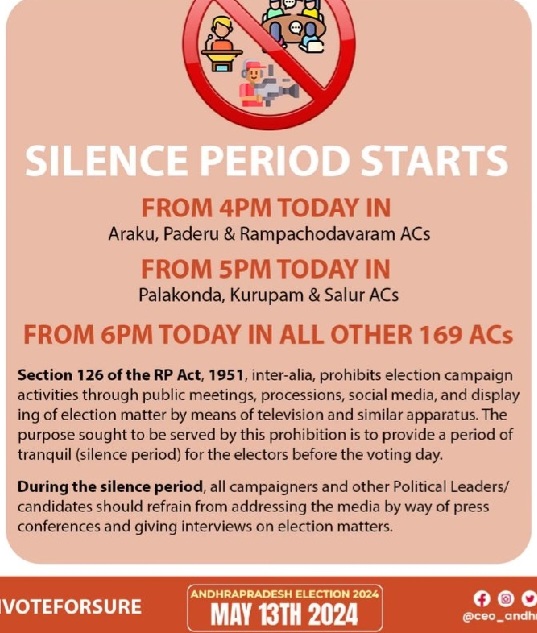NEW DELHI: In the run-up to the Andhra Pradesh elections, the Association for Democratic Reforms (ADR) has released a comprehensive report shedding light on the financial and legal profiles of candidates, that has given choices to the voters to elect their MLAs.
The ADR report, compiled from self-affirmed affidavits submitted to the Election Commission of India (ECI), highlights a significant surge in the wealth of re-contesting MLAs.
Notably, the five richest candidates have seen staggering asset increments, as per the ADR's analysis.
In the Andhra Pradesh Assembly Elections, the average assets of 134 re-contesting MLAs in 2019 were Rs 31.39 Crores. Fast forward to 2024, their average assets have surged to Rs 49.40 Crores, marking an average growth of Rs 18.00 Crores over five years, which translates to a 57% increase.
Among these re-contesting MLAs, Chandrababu Naidu Nara from TDP's Kuppam constituency saw the highest asset increase, soaring by Rs 263.26 Crores from 2019 to 2024.
Yeluri Sambasiva Rao of TDP from Parchur constituency follows closely with assets rising by Rs 253.90 Crores. YS Jagan Mohan Reddy of YSRCP from Pulivendla constituency experienced a notable rise of Rs 247.26 Crores.
However, alongside wealth analysis, the ADR report scrutinizes candidates' criminal backgrounds, revealing instances of legal entanglements among certain contenders.
This comprehensive examination of candidates' legal and financial profiles underscores the intricate dynamics of candidate selection strategies in Andhra Pradesh.
In light of these findings, the ADR emphasizes the need for transparency and accountability in electoral processes.
It recommends that political parties prioritize the selection of candidates with clean records and transparent financial disclosures.
Such measures, the ADR contends, are essential for upholding the principles of democracy and fostering public trust in the electoral system.
Given this, electorate needs to make a crucial electoral verdict, considering both financial standing and legal integrity in their decision-making process.




